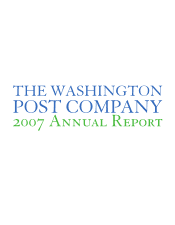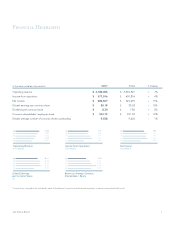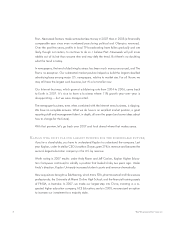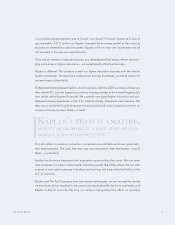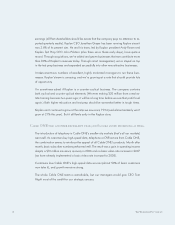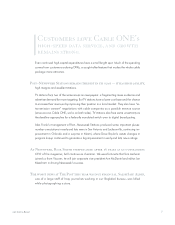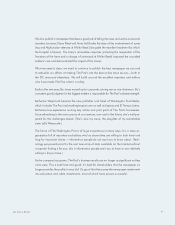Washington Post 2007 Annual Report Download - page 10
Download and view the complete annual report
Please find page 10 of the 2007 Washington Post annual report below. You can navigate through the pages in the report by either clicking on the pages listed below, or by using the keyword search tool below to find specific information within the annual report.
Salih was a highly respected journalist; his death reminded us all of how dangerous a
place Iraq has been for reporters and photographers of all nationalities.
But covering the war is as important as ever. The Post and Newsweek continue to keep
correspondents there, and their work will continue to be dangerous.
Iraq reminds us of what is at stake as newspapers try to address their financial problems:
2007 was a memorably difficult year for the newspaper business. At The Post, the numbers
spoke for themselves: a $77 million decline in print advertising revenue, and only a $6
million increase in online advertising.
I still feel The Post has the best prospects of any large newspaper: a super-strong local
market position (deep penetration both in print and online) and good national prospects
online (9.9 million unique visitors in January 2008).
Anyone who has worked in a newspaper newsroom comes away with admiration for good
reporters—those who find stories people don’t know and need to. In the ’70s and ’80s,
printing the work of those reporters seemed enough. Almost every adult read a newspaper;
they tripped across ads serendipitously and responded to them; when looking for a job, a
car or a house, they automatically bought a paper and shopped the classifieds.
These mutually reinforcing habits lately have been working in reverse. The ads still work,
and the reporters still gather news; but fewer readers buy the paper, and advertisers have
more choices.
That said, people still want news — not just in presidential election years, but this year es-
pecially. Some organizations will put together online news reports organized in the way
people prefer; we have as good a chance as any. We have many smart journalists and
exceptional Internet developers.
The Washington Post Company
8
I still feel The Post has the
best prospects of any large newspaper.

